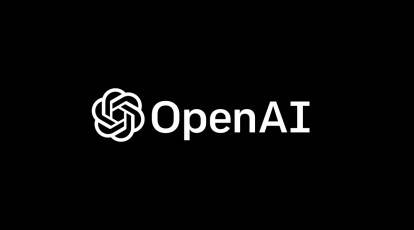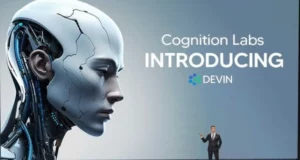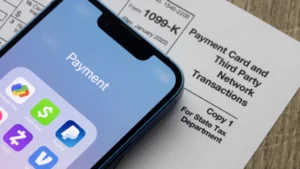In artificial intelligence, one name has recently dominated conversations – Chat GPT OpenAi. Created by San Francisco-based startup OpenAI, this AI tool was made available for public testing in November 2022 and quickly gained a following of over a million users within a week, according to the company’s CEO. By the end of January, ChatGPT had an average of 13 million daily visitors who tested the text-based chatbot with various prompts, from the silly to the practical and creative.
The popularity of ChatGPT has reached such heights that users may encounter messages indicating the tool is at capacity and cannot handle further queries. As someone who values good grammar, style, punctuation, and spelling, it’s worth noting that ChatGPT performs impressively well at basic writing, surpassing many reports submitted by students over the years.
There has been a surge of interest in ChatGPT and generative AI, more generally comparable to the impact of the iPhone in its time. Nevertheless, as with any new technology, there are valid concerns, especially as tools like ChatGPT can exacerbate the problem of fake news.
Interview With Chat GPT
OpenAI turned down CNBC’s request for an interview for this documentary, so CNBC went to ChatGPT for information. We typed our questions into a web interface and asked the chatbot to answer them in a short interview style. To provide ChatGPT with a voice, we employed text-to-speech software. ChatGPT said it is a big language model trained on a huge amount of text when asked to describe itself and what it can do. This lets it understand and create text about a wide range of topics. But as a language model, ChatGPT has no personal experience or beliefs, so it can only give answers based on the training data, which is only sometimes up-to-date or right. Furthermore, an AI model may make errors based on the model’s predictions.
Who is Leading This Company
Elon Musk is one of the co-founders of OpenAI, the company that created ChatGPT, and other well-known companies like Microsoft, Reid Hoffman, and Khosla Ventures support it. ChatGPT, a generatively pre-trained transformer, is one of OpenAI’s projects to ensure AI benefits humanity. It utilizes GPT 3.5, a language model that sifts through vast amounts of data to provide accurate responses to users. This model is the engine behind the chatbot, which belongs to the growing field of generative AI that allows for creating brand-new content. OpenAI has put a lot of money into ChatGPT, and Microsoft has given the model money and the infrastructure it needs. Other companies are also developing their language models for conversational chatbots.
Use Case And Limitation
Unlike many hyped technology sectors, generative AI has practical applications for individuals and businesses. For example, Microsoft has integrated some of OpenAI’s products into its offerings, such as CarMax using OpenAI’s service on Azure to summarize hundreds of car reviews for the Kia Sorento. This saves users time and effort by condensing the information into a manageable format.
According to reports, Microsoft is considering incorporating ChatGPT into its Bing search engine to compete with Google. Another company, You.com, is already experimenting with a conversational search format powered by AI. However, while AI tools are advancing rapidly, they are still far from perfect, and experts caution against relying too heavily on them, at least for now. Even OpenAI’s CEO has stated that depending on AI for anything important is a mistake, which is still a work in progress.
We still have a lot of work to do to ensure the robustness and truthfulness of the AI model,” stated by OpenAI CEO. Many areas require improvements, such as reducing the generation of inaccurate responses. Although the AI model is confident, it still produces many errors. A legal research firm reported that when it used the model to analyze or summarize court cases, it provided a lot of incorrect historical information. As a result, they could not use it as a legal research tool yet. As Google has a large user base, ensuring the accuracy of information is its top priority.
During a monthly meeting attended by all employees, Google executives mentioned that the company has a greater reputational risk when providing inaccurate information. Therefore, it is taking a more cautious approach than smaller startups in releasing its chatbot to the public. While an AI-powered chatbot and a question-and-answer format search page are being tested internally, the current iteration of AI technology still has the potential to be biased or toxic if it relies on similarly narrow or contaminated databases. There have been instances where AI generated limited answers, such as associating women with housework and men with scientific endeavors, which is an issue that OpenAI has acknowledged. This problem has long plagued the AI industry, and many companies are grappling with how to address it.
Although many datasets undergo a process of cleaning, vetting, or wrangling to eliminate offensive or inappropriate content, cleaning large datasets can come at a significant human cost. For example, OpenAI had initially outsourced workers in Kenya to sift through snippets of texts describing horrific situations, such as sexual abuse, violence, and hate speech, to label them as inappropriate, allowing ChatGPT to learn to detect and filter out toxic content. However, a recent investigation by TIME found that several workers were traumatized by the job. Despite such efforts, ChatGPT has occasionally provided instructions on dangerous activities, such as bomb-making. When contacted, OpenAI did not respond to CNBC’s request for comment on the incident.
Future Implication
Although there is still a long way to go for generative AI like ChatGPT, there is already discussion about how this technology may impact our society. One of the most talked-about topics is the possibility that generative AI could replace some jobs, especially in journalism, law, and translation. Also, companies are already teaching AI models to write simple code, which could also change the programming field. Some experts think that generative AI will be very good at writing briefs for lawyers or news reports. Others, however, believe that technology is just a gimmick and will keep jobs from people.
Image generation programs such as OpenAI’s Dall-E2 have sparked discussions about creativity and ownership, but some experts argue that AI cannot replace the human brain. While large language models excel at language-related tasks, they need help comprehending the world beyond words, which humans are adept at. Nevertheless, these models can eliminate tedious tasks such as data cleaning and preparation, often unwanted parts of many jobs.
The advancements in AI technology will ultimately create more opportunities for knowledge workers in the long term than they will limit. ChatGPT’s perspectives on this matter are quite intricate for a chatbot. While AI certainly has the potential to revolutionize various industries and fields, its actual impact will largely depend on how it is developed and utilized. Responsible





Leave a Comment
You must be logged in to post a comment.